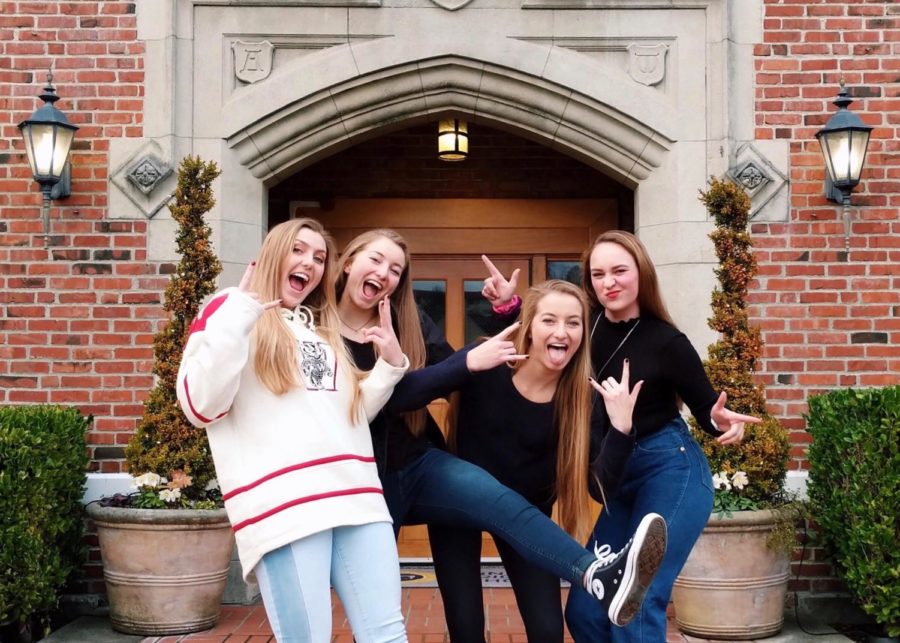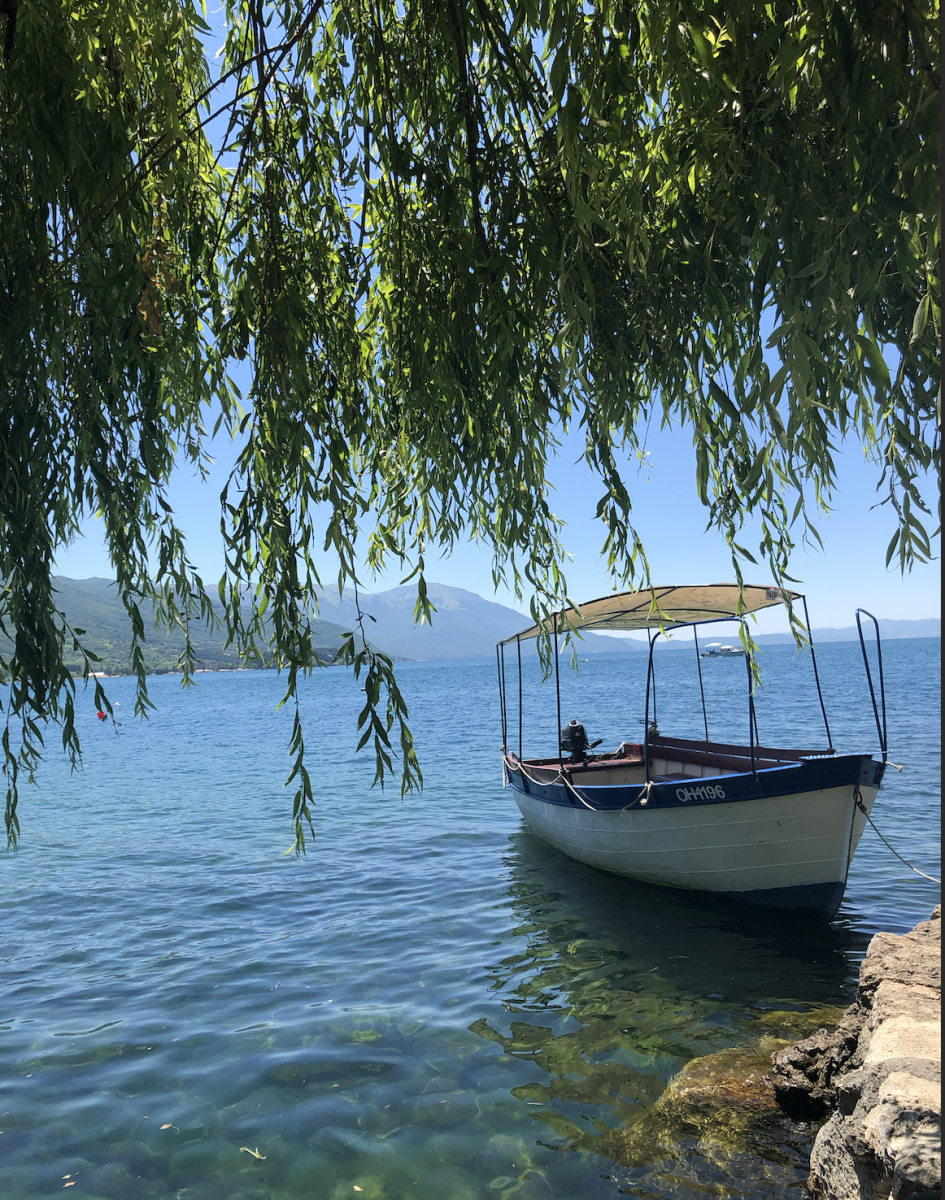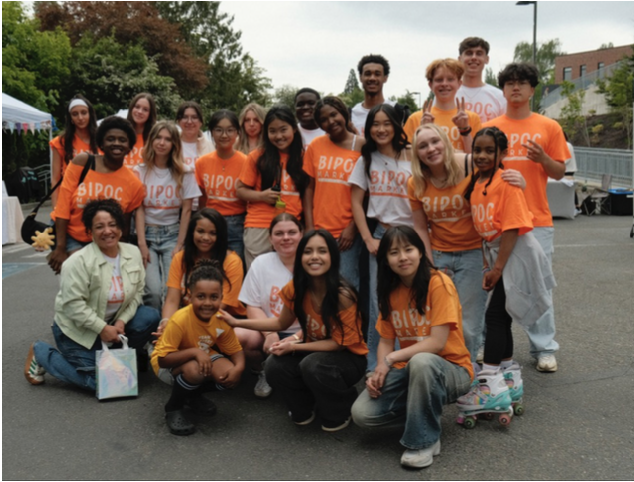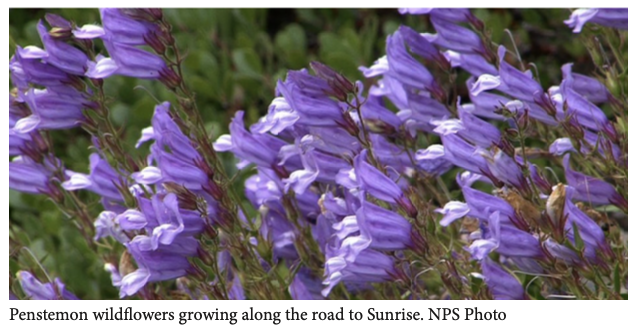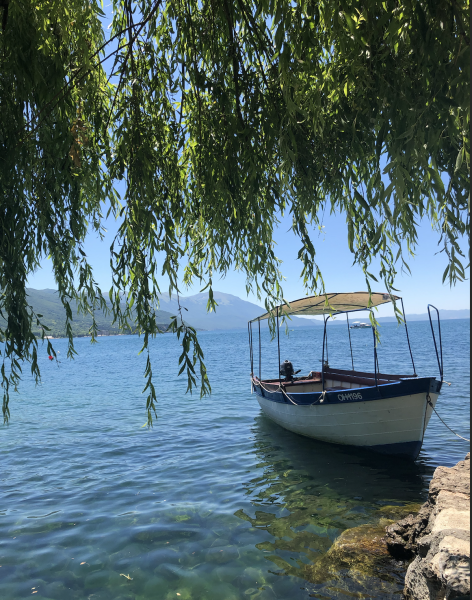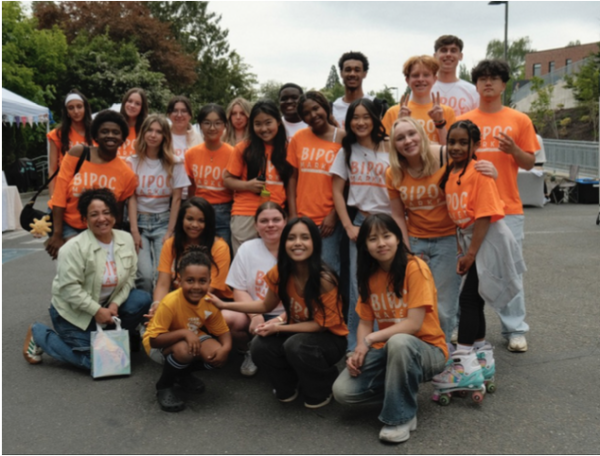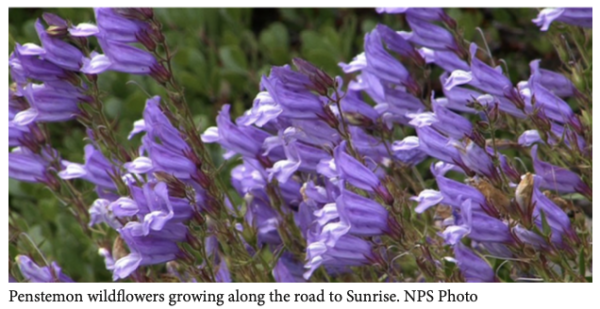College Annies return to campus
Annie Wright Yellow Tie alumnae returned to campus for the annual College Annies’ Comeback event, where they shared advice, stories and adventures with the Upper School. Photo courtesy of Elle Hansen
January 5, 2018
Thirteen Annie Wright alumnae returned to campus on Thursday for the annual College Annies’ Comeback, where they shared their college stories, advice and adventures with the Upper School. All but one of the participants are college freshmen.
The event, which ran for an hour, bounced between moderated discussion topics from Upper School college counselor Scottie Hill and informal questions from the Upper School audience.
After an energetic welcoming applause from Annie Wright students and faculty, the college students first introduced themselves and their schools, which widely range in size, location and character.
The discussion began with academics. Several girls mentioned that the writing program in particular at Annie Wright prepared them well for college essay writing. Time management skills learned at Annie Wright also contributed to some of their academic successes.
“One of my final papers for one of my classes was a 10-page analytical paper, and I was able to write it in six hours and get a good passing grade on it,” said Aurora Hake, a freshman at Boston University. Students found this information quite amusing, breaking out in empathetic cheers, applause and laughter.
Some students, however, were not as prepared for the larger academic atmosphere. A freshman at University of Wisconsin, Madison, Annika Cederstrand said that her 300-student lecture halls were a “huge transition.” Getting to know your professors at a big university is not impossible, though. “You can definitely make that connection if you want to…I just did it later in the semester,” said Cederstrand.
The alumnae then jumped to their social lives. With the all-girls academic experience in the Upper School, going to school with boys was a big topic. They also addressed roommates, finding friend groups, and party scenes.
Sophomore Erica Greening transferred from Mills College, a women’s liberal arts college, to the University of Puget Sound. She currently lives in a co-ed dorm room, and she said that it is a “chill” experience. “I see more of a difference in my social life than I do in my academic life,” Greening said about going to school with boys.
Courtney Cureton, a freshman at the University of San Diego, and Genevieve Grant, participating in a dual BA program with Sciences Po in Menton, France, and Columbia University, both said that orientation was a great time to meet friends. “It’s such a great time to find friends because, for the most part, everyone is looking for friends, everyone is nervous, and everyone is super weirded out by this new situation,” said Grant.
Some students found their niche through athletics. Cureton rows crew at USD and Elle Hansen runs track at Washington University. Hannah Gaven, a freshman at Vassar College, found friends on the fencing team, which she joined despite having no prior fencing experience.
Cat Farrell, a first year member of the ROTC Program at the University of Idaho, chose a different method to socialize. “I was nervous about putting myself out there so I instead waited for the first week of lectures to start when everyone had to be there, and I forced people to talk to me,” said Farrell. She also would “fake drop a pencil” to start conversations.
Mindy Lee goes to the School of the Art Institute of Chicago, where she enjoys seeing other students with similar interests that are “so passionate about what they’re doing.”
The students closed by reflecting on the locations of their schools. There is a wide range of weather and living preferences among the group. Some love the heat, and some could live without it. Some enjoyed the city life while others find comfort in a traditional college town. A few have picked up regional accents and others remarked on the considerable political culture of their respective regions.
Emmanuelle Beaurpere, who attends the University of New Hampshire in Durham, mentioned a lack of diversity on campus and in town. She said her school is 60% male and 90% white, and for that she elected to live in an international dorm in order “to feel more at home.”
The students were then asked to wrap up by finding one word, phrase or sentence that described what they missed most about Annie Wright. All answers circled back to the tight, diverse and unique community of Annie Wright.
To conclude the event, the students and faculty gave another round of applause and then greeted, hugged and chatted with the former Yellow and Blue Ties.


